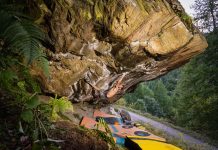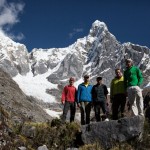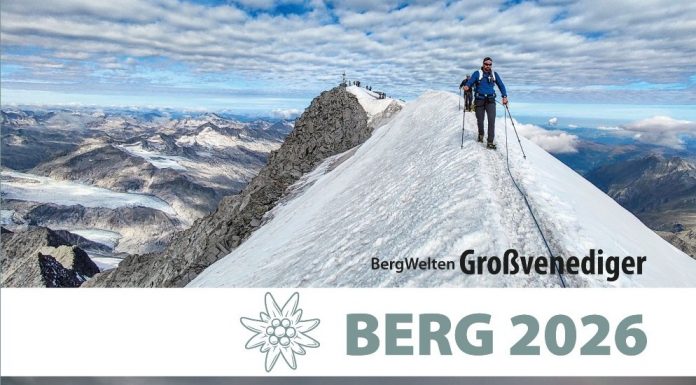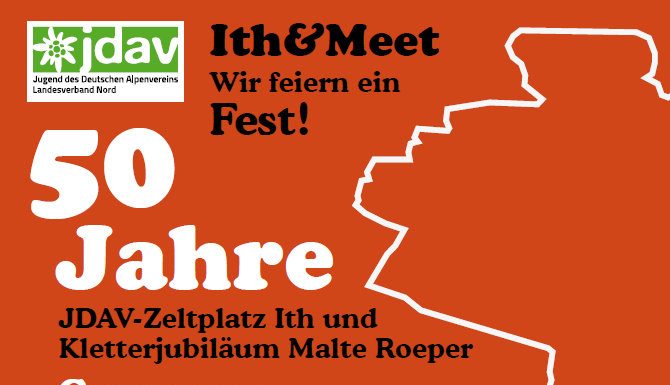The Outdoor Industry Association has just released the below press release that details proposals by United Utilities (owners of large tracts of land in the Lake District) to CHARGE ´commercial´ groups to access their land which comes under the CRoW act. From the report it seems that United Utilities have the full intention to start charging access to their land to groups – be they universities, local walking groups or outdoor centres. In the report OIA state that „(United Utilities) do not want to target individual climbers, hill-walkers or clubs, but do intend to compile a database of groups, centres and instructors using their land and implement a charging system on them“
 |
| photo by Alastair Lee |
From reading the report, United Utilities could be setting a very dangerous precedent that could affect many parts of the UK that became ´open access land´ under the CRoW act. The OIA state that“If UU?s scheme proves successful, who knows what other landowners throughout England and Wales may do in the future? Which other ?restricted activities? in the CRoW regulations might landowners seize upon as a possible source of income from all, not just from ?commercial activities? (and it would appear that UU?s interpretation of that phrase may well encompass a teacher with a group of schoolchildren)“ It seems that the CRoW act may come under some serious pressure from companies who own large part of land now accessible under the act.There will be an open meeting taking place to discuss this on the 11th December at 7.00 p.m at the Bolton Arena which is located just off J6 on the M1, opposite the Reebok Stadium(Bolton Football Club Stadium). It will be hosted by Eric Grindle. At the meeting their will be representatives of the BMC, MLTE, OEAP, AHOEC and United Utilities. Full OIA press release below: The BMC (Guy Keating) and MLTE (Andy Say) recently attended a ?Recreation, Access and Conservation? Conference held by United Utilities (UU) at which they detailed proposals to implement a scheme to charge ?commercial? groups for the privilege of accessing their land.The company owns approx. 58,000 hectares including substantial parts of the Lake District including, Ennerdale, Haweswater, Thirlmere, the Shap fells, Bowland, and further south the Longdendale/Chew/Goyt valleys, and other parts of the Dark Peak. (They also, apparently, draw water under an agreement with Dwr Cymru from Wales). Many of these holdings are now designated as Open Access land under the CRoW Act.UU state that they have an ?over-riding principle to waive any charges where the sole purpose of the event is either educational or to benefit a charity? (but do not explicitly state that they will not charge) ? a questionable statement in itself as it presupposes people should be charged for access even if they are involved in education, training or charitable work.This highly contentious policy has developed from UU?s interpretation of wording in the CRoW Act, which states ?a person is not entitled to be on Open Access land if they are engaged in any activity which is organised or undertaken (whether by him or another) for any commercial purpose,? – ?commercial? being defined as an operation where ?profit is the primary motive.?Following the presentation UU representatives were questioned and we are of the opinion that there is some debate about the legality of the proposal in relation to public Rights of Way legislation and accepted activities named within the Act. They also stated they do not want to target individual climbers, hill-walkers or clubs, but do intend to compile a database of groups, centres and instructors using their land and implement a charging system on them.UU intend to administrate the scheme through a bureaucratic licence scheme requiring an event outline, participant lists, risk assessments, insurance details for which they intend charge a £30 admin fee and £1/person for participants. In the case of outdoor centres or individual instructors an annual permit scheme is proposed requiring applicants to divulge details on the income generated from activities on UU land and on the proportion of charitable, educational and commercial work they do so that UU can calculate an appropriate charge. We are led to believe that the ?waivable? element is only the £1 per head and not the £30 admin element which will have to be paid simply to get any permit application processed.As a connected side issue UU declared that they had banned ghyll scrambling on their land for the last year but were pleased to announce the ?re-opening? of the four ghylls on their land. This was met with some disbelief both at their ignorance of how many ghylls on their land are actually included in published guides (Andy Say estimates 12 in Thirlmere alone) and also the dubious legality of ?banning? an activity on foot without bothering to go through the restriction order process as outlined in the CRoW regs. UU may be intending that this ?ban? only applied to groups (the groups that will now have to pay to go ghyll scrambling?) but nowhere was this made explicit.
 |
| photo by Alastair Lee |
The bottom line is the initiative is a very worrying development and sets a dangerous precedent for the outdoor industry. If UU?s scheme proves successful, who knows what other landowners throughout England and Wales may do in the future? Which other ?restricted activities? in the CRoW regulations might landowners seize upon as a possible source of income from all, not just from ?commercial activities? (and it would appear that UU?s interpretation of that phrase may well encompass a teacher with a group of schoolchildren).Charging for access goes against a fundamental principle of the BMC – free access for all ? and MLTE is conscious of the effect that this proposal might have on both providers of courses and also award holders. Both organisations, along with OEAP and AHOEC, intend to continue working with partners and contacts to ensure UU are fully aware of the strength of feeling from the outdoor community on this issue. It is proposed that an open meeting will be held in Bolton, hosted by Eric Grindle, on 11th December at 7.00 p.m.The following notes are from Andy Say and are from a lay person?s perspective; none of this has been tested in the courts!1. There is a flaw in the suggested interpretation of ´commercial activity´ – we have good guidance that indicates that education, training, charity probably has a perfect entitlement under the act to use access charge without charge.2. There is an abstruse but important point that the Act can be read to specify that certain activities are ´not entitled´ UNDER THE TERMS OF THE ACT but are not thereby prohibited. i.e. You can´t claim you are doing this because you are allowed by the Act but you may well be allowed to anyway.3. ´Section 15´ land is land to which there were existing access agreements before CRoW and CRoW does not override those agreements – mapping is currently being undertaken of ´Section 15 land´ by natural England. Therefore any land to which there was agreed access with no charge before CRoW should maintain that status.4. When the land was transferred to UU an undertaking was apparently given by the then minister that charging would never be levied for access to that land – a legal test would be interesting.5. If you want to ban an allowed activity on CRoW land (ghyll scrambling) there is a legal process to go through; you cant simply place signs or issue letters.6. If you are on a public right of way your rights supercede the restrictions of CRoW.



![[VIDEO] Irmgard Braun: Record Breaking Rock Climber Who Gets Stronger Every Year Irmgard Braun: Record Breaking Rock Climber Who Gets Stronger Every Year (c) Hannah Morris Bouldering](https://www.climbing.de/wp-content/uploads/2025/11/youtube_MpAJEENfEjg-218x150.jpg)

![[VIDEO] The Challenge – Steve McClure The Challenge - Steve McClure (c) Petzl Sport](https://www.climbing.de/wp-content/uploads/2025/11/youtube_mfK9ynVsDvI-218x150.jpg)
![[VIDEO] Silence 9c/5.15d – The journey begins for Will Bosi Silence 9c/5.15d - The journey begins for Will Bosi (c) William Bosi](https://www.climbing.de/wp-content/uploads/2025/11/youtube_ujb7YRfE-7k-218x150.jpg)
![[VIDEO] Yosemite Crack Testpiece: Connor Herson on Magic Line Yosemite Crack Testpiece: Connor Herson on Magic Line (c) Fusis Films](https://www.climbing.de/wp-content/uploads/2025/10/youtube_h4GEt5iSZpA-218x150.jpg)
![[VIDEO] Hardest Trad Flash Ever | Adam Ondra | Lexicon E11 Hardest Trad Flash Ever | Adam Ondra | Lexicon E11 (c) Mammut](https://www.climbing.de/wp-content/uploads/2025/06/youtube_SAUyrDLG5xM-218x150.jpg)

![[VIDEO] Jan Hojer bouldert in Südafrika](https://www.climbing.de/wp-content/uploads/2014/12/vimeo_47555959-150x150.jpg)











